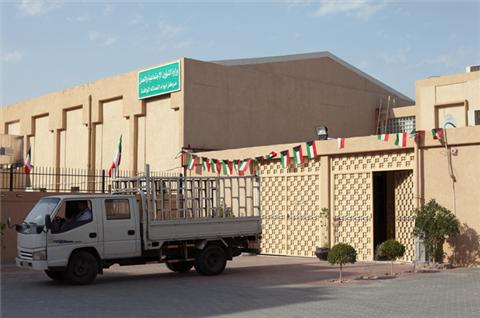By FARRAH NAZ KARIM AND TASNIM LOKMAN - 1 November 2014 @ 8:09 AM
The catch is they have to be willing to fork out between RM1,000 and RM1,200 a month for their services, without making deductions.
The good news is, unlike the many already in employment here, these maids will be trained cooks as well as good caregivers including to newborns and the aged.
Those paying the maximum pay rate can expect to have well-manicured lawns and, for× Muslim families, their children taught to read the× Quran, as this category of maids would have undergone special training for these extra services.
Even after the more than two-year freeze on the employment of× Indonesian maids was lifted in 2011, many× Malaysian employers in need of maids from the country had not been able to employ one.
Maid agencies have said they had not been able to secure the workers, blaming their non-availability and high costs.
Indonesian Manpower Services Association (Apjati) president× Basalamah, in denying suggestions that there was no supply of maids for the× Malaysian market, said it could meet the demand of× Malaysian households, which averages between 5,000 and 7,000 maids a month.
“We think that is not a fair price. RM800 to work in× Malaysia is not high, as even by doing odd jobs back home they can earn up to RM700.
“But Malaysian employers can rest assured that these maids could come their way if they are willing to pay. The maids are well-trained not only in handling chores, but also to understand× Malaysia’s cultures and laws. They would have undergone a strict medical check-up, too,” he told the New Straits Times after meeting Indonesian Manpower and Transmigration Minister Hanif Sidak.
Ayub said the meeting touched specifically on the sending of workforce with quality to× Malaysia and that Apjati (the largest association formed by private recruitment agencies in Indonesia) gave the undertaking that it was what it wanted to do.
Agencies under× Apjati, he said, would charge employers a one-off fee of between RM5,000 and RM6,000 and that it had no control over agencies here if they doubled the cost.
Apjati said its members send out some 40,000 Indonesian maids abroad every month, mostly to the× East.
Malaysian Association of Foreign Maid Agencies (Papa) on× Thursday said Malaysians could forget about hiring× Indonesian maids, citing high costs to middlemen in the country.
This, it said, would inadvertently force employers to fork out between RM10,000 and RM15,000 for an× Indonesian maid.
Ayub said while× Apjati had worked closely with× Papa, it was not legally bound to have an exclusive relation with the agency of some 200 members.
However, under× Indonesian law, recruitment agencies must work with× Malaysian employment companies to bring in the maids and must never deal directly with employers.
“If there are agencies in Malaysia willing to work with our members and settle for a lower profit margin, Malaysian employers can expect to pay much less than what they had been told,” he said, adding that Apjati was ready to engage parties other than Papa, in facilitating the sending over of trained Indonesian domestic workers.
The Malaysian Maid Employers Association (Mama) said it was willing to work together with Apjati to bring in the maids.
If this arrangement works out, Malaysian employers will pay no more than RM7,300 (one-off) for a maid from Apjati’s members.
Its president, Engku Ahmad Fauzi Engku Muhsein, said Mama was even looking at RM6,300 as the maximum cost.
The association, he said, had secured the Human Resources Ministry’s approval to engage local employment agencies (two are already signed up with Mama) to work with Indonesian recruitment agencies.
Engku Fauzi said the fees on the Malaysian side would be capped at RM1,300, which came with, among others, a “warranty” for employers to replace their maids and health screenings.
Mama said the maids would also undergo an orientation programme before being sent to households.
The maids would be given access to a helpline in case of emergencies.
“The best arrangement would be RM5,000 for the Indonesian side and RM1,300 for our side. So employers pay RM6,300.
“But if Apjati sets it at RM6,000, we will ask it to justify and then go back to the employer. If the employer has no problems paying another RM1,000, perhaps for the maid’s additional skills, there should be no problems.”
The Malaysian Human Resources Ministry yesterday said it was looking at several countries, including Nepal and Bangladesh, as new source countries to meet the demand for domestic helpers.
However, these countries, along with the existing ones, had requested for better benefits for their domestic workers and implied that the cost of engaging them would not be easy on employers’ pockets.
It said source countries, such as the Philippines, Cambodia and Vietnam, had asked that a Memorandum of Understanding be drawn up to provide for better salaries, inclusion of days off and ample protection for the workers.



